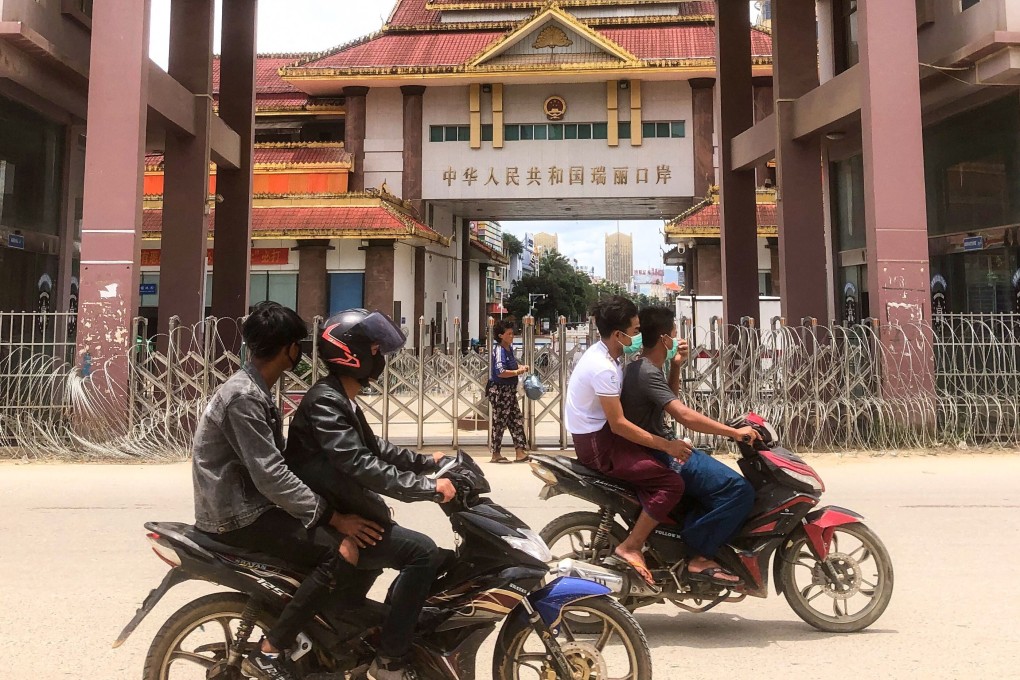Ruili, China’s gateway to Myanmar, hit by dual hardships of coronavirus and conflict across border
- Evacuation planned for 2,000 residents in Wanding town after resident injured and houses damaged by stray bullets from Myanmar
- But Ruili official says city won’t relax strict containment measures as pandemic prevention and control situation is still ‘severe and complex’

A government source in the city of Ruili, China’s major gateway to Myanmar in Yunnan province, said an evacuation was planned for 2,000 residents in Wanding town after one person was injured and houses were damaged in mid-October by stray bullets from over the border.
Wanding town is just 50 metres (164 feet) from Pang Hseng town in northern Myanmar’s Shan state, where junta troops and ethnic Shan armed groups have engaged in sporadic fighting since August.
“We have stacked sandbags around schools and some places where there are more residents walking,” said the official, who declined to be named because he is not authorised to speak to the media.
He also confirmed the authenticity of a notice issued by the town’s government and circulating online since October 19 which said the conflict in Pang Hseng had caused injury and property loss among Wanding residents. It asked that they minimise outdoor activities and take shelter when they hear gunshots.